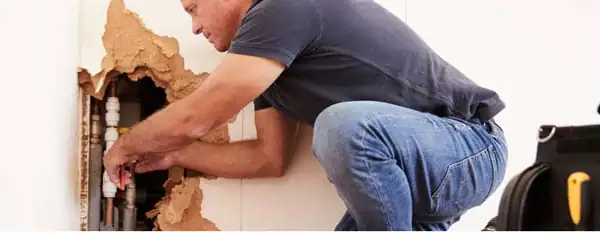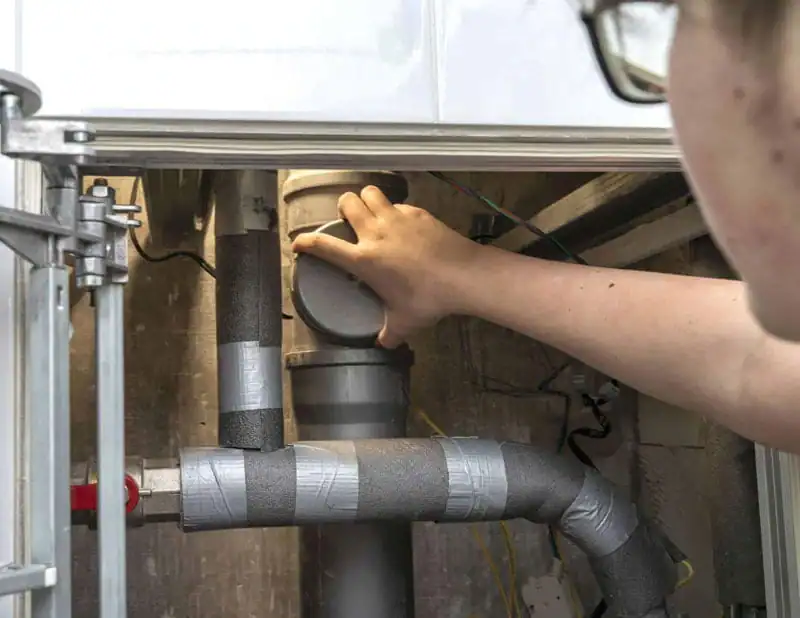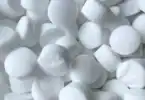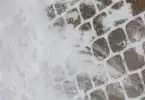Water softener systems are a popular solution for homeowners looking to combat the negative effects of hard water. One common question many people have is whether the use of water softener salt can cause pipe corrosion in their home.
Hard water contains high levels of minerals such as calcium and magnesium that can cause scale buildup in pipes and fixtures, reducing water flow and causing damage over time.
Salt-based Water softeners work by replacing these minerals with sodium or potassium ions, preventing scale buildup.
Definition of Pipe Corrosion
Can water softener systems create corrosion issues? It seems like we should first define what we mean by pipe corrosion.
Pipeline corrosion is the oxidisation and electrochemical breakdown of the structure of a pipe used to convey any substance. Pipeline corrosion occurs on both the inside and outside of any pipe and related structures, exposed to corrosive elements. From the article, What is Pipeline Corrosion?
Salt-based water softener systems are not considered to cause either oxidation or electro-chemical breakdown of household piping.
What water softener systems do is to exchange minerals like Calcium, Iron or Magnesium that are dissolved in water and the process exchanges those minerals for the sodium that is one of the components of the salt. ‘Hard water’ is the name for water that has a higher level of Calcium, Iron, Magnesium or even other minerals in it, and those minerals can form deposits on faucets, valves, shower heads, appliances like dishwashers, and even within the pipes. The buildup is usually called ‘Scale’ or ‘Limescale’. Water softener systems are designed to reduce scale.

How Does Water Softener Salt Work?
Water softeners work by removing minerals such as calcium and magnesium from hard water. Hard water contains high concentrations of these minerals which can cause limescale buildup in pipes and appliances, reduce the effectiveness of soaps and detergents, and leave spots on dishes and fixtures. Over time, it can even plug up the holes in your shower head, reducing flow and making the water spray out in weird directions.
Water softener salt, primarily consisting of sodium chloride, is used in the regeneration process of water softeners. When hard water flows through the resin beads in the softener tank, the minerals are attracted to the resin and stick to it. The water that comes out of the softener is then mostly free of these minerals, but the resin beads become coated in calcium and magnesium ions.
The water softener then enters a regeneration cycle, where a brine solution made of water and salt is flushed through the resin tank. The salt causes the resin beads to release the calcium and magnesium ions, which are then flushed out of the softener and down the drain. The resin beads are then recharged with sodium ions from the salt, making them ready to remove more minerals from the incoming hard water.
It is important to note that while water softener salt does contain sodium, the amount added to the water during the softening process is relatively small and is not considered a significant source of dietary sodium intake. However, some individuals with high blood pressure or other health concerns may want to consider alternative methods of water treatment.
For a really good, in depth article about how water softener systems work, the US Department of Energy supplied this article: Purchasing and Maintaining A Water Softener. If you’d like to know more about the type of salt used for water softener systems, see: A Guide To Water Softener Salt: Pellets, Blocks, Cubes, or Crystals.
Can Water Softener Salt Cause Pipe Corrosion?
One of the most common concerns among homeowners who use water softeners is whether the salt used in the softening process can corrode their pipes.
It turns out that salt-based water softeners systems are good for your pipes and fixtures. The minerals which buildup on the contact surfaces (faucets, shower heads, etc.) are replaced with sodium which does not cause the same detrimental effects.
So why is this even a question? Why write an article about it?
Why Do People Worry About Pipe Corrosion?
I think that concerns about pipe corrosion persist because of a number of reasons. Here are my theories.
Old Pipes
Houses built in the 1950s just didn’t have many options for piping materials as we now have. There basically was copper pipe and galvanized iron pipe. They are also rather old at this point and many factors can contribute to old plumbing developing issues.
- Over time old Copper pipes can be susceptible to leaching, causing the copper to become brittle and eventually develop small cracks, leading to leaks.
- Galvanized pipes years of use can cause the zinc coating to wear away and expose the iron underneath, leading to rust and corrosion.
Building materials have evolved. The construction and installation methods for both copper and galvanized pipes improved, and we gained access to plastic choices.
- Polyvinyl Chloride or PVC piping, is not susceptible to pipe corrosion from minerals, or the lack of them (more on that in a bit).
- Newer copper piping is less likely to be affected than older copper pipes, as it is made with different alloys that are more resistant to corrosion.
It is also worth noting that other factors such as pH levels, dissolved oxygen, and the presence of other minerals in the water can also play a role.
Also note that in very old homes, lead piping can potentially be an issue. While lead started to go out of usage earlier, due to health concerns, lead pipe was not prohibited until 1986!
Corrosion Confusion
We did start with a definition for a reason. People can use the term ‘pipe corrosion’ and actually mean that stuff is building up on or near their pipes, which is technically called ‘scale’ or ‘limescale’.
Water Filtering vs Water Softening
Salt-based Water Softening systems essentially work through a process of replacing minerals with sodium. A water filter like a Reverse Osmosis system has a process that removes the minerals. So the Total Dissolved Solids (TDS) in a water softener system does not really change, but the ‘solids’ are different. In a Reverse Osmosis, or ‘RO’ filter, the total dissolved solids are greatly reduced.
As it turns out, if there are very few solids in the water, the water ‘wants’ to attract new solids – and will leach them from your pipes if possible. That is why RO Filter systems use only plastic for the piping and connections (and perhaps stainless steel when a metal component is required, such as the filtered water faucet at your kitchen sink). If you run RO water through Copper piping, it will leach the copper from the walls of the pipe. That would be pipe corrosion – if it were allowed to happen.
This is not to say that Reverse Osmosis is ‘bad’, it is just a different process than water softening and they each have different purposes. Many people have reason to have both types of systems in their home. Typically water softener systems are ‘whole house’ units used to combat hard water, whereas the Reverse Osmosis system is used for producing very safe and very good tasting drinking water and is typically only piped to the kitchen sink and perhaps to the ice maker (via piping that does not corrode).
In Water Softener Salt And Reverse Osmosis: What’s the Difference? we go further into depth about the differences between water softening systems and Reverse Osmosis filtering systems.
Other Softening Solutions
It’s worth noting that not all water softeners use salt. Salt-free water softeners are available, and they can be a good option for homeowners who are concerned about the sodium used in the softening process. There are also systems that use magnetic fields – these are supposed to work by altering the minerals so that they do not form limescale while they are passing through your household pipes.
Final Thoughts
Water softener salt, when used properly and especially in modern situations is not a contributor to pipe corrosion. Water softened in a water softening system can significantly reduce scaling in pipes, faucets, valves and appliances for those folks that live in areas with hard water. While this possible corrosion idea seems to perpetuate, it really is not a cause for concern in the vast majority of households.







